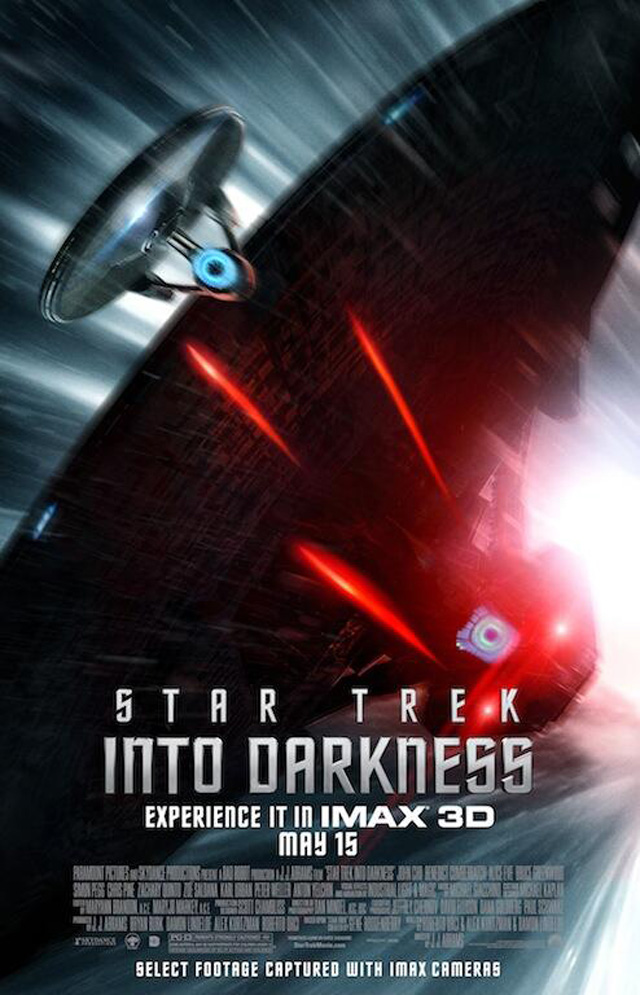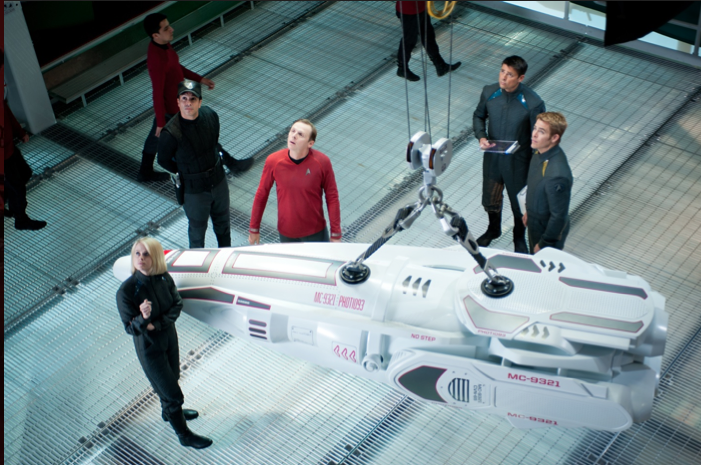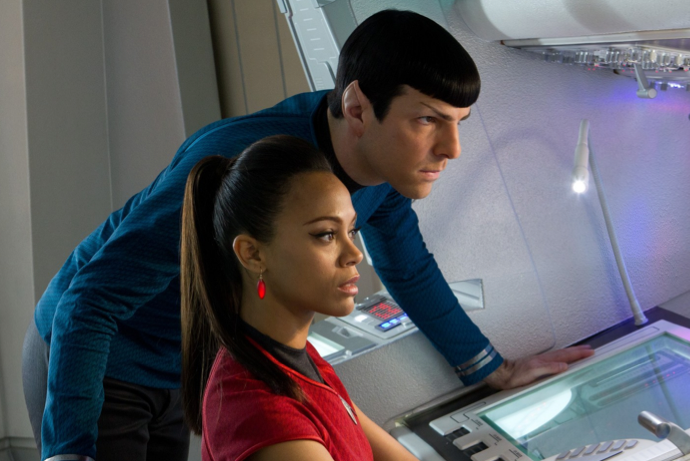Why We Still Love 'Star Trek,' Final Frontiers and All

The interstellar voyages of the Starship Enterprise have captured imaginations around the world for decades.
Astronauts, movie makers, scientists, engineers and others from all walks of life cite "Star Trek's" science and technology as an influence on their lives and worldview. But why? What makes "Star Trek" the enduring and thrilling science fiction epic it is today?
The optimistic crew led by Captain Kirk in the original series and Jean-Luc Picard in "Star Trek: The Next Generation" gave a science-minded generation an outlet for expression, Dr. Mae Jemison, one of the astronauts inspired by the show said. [See the Evolution of the Starship Enterprise in Photos]
"I saw 'Star Trek' the original series as a little girl and for me it was really great because it talked about and it dealt with situations that were going on at the time, but you saw it with a lens of another place, another time, another world, another group of people," Jemison, a former astronaut and the principal for the 100 Year Starship Initiative, told SPACE.com. "So it was easy to actually do some of those morality plays and really bring a number of issues to the foreground and really talk about them."
When Jemison — the first African-American woman to fly in space — began watching the original series, she felt affirmed by the diversity of characters represented on the show. At the time, that diversity wasn't present in the real-life astronaut corps.
"I think the other thing that 'Star Trek' did was it basically said that humanity would make it through all of the conflicts and catastrophes that we were facing," Jemison said.

"Star Trek's" particular brand of science fiction has also motivated other scientists.
Get the Space.com Newsletter
Breaking space news, the latest updates on rocket launches, skywatching events and more!
"I think it's one of those things it all goes back to a deep desire to see some very incredible things maybe come to pass one day," Harold White, a NASA engineer, said of his "Star Trek" fandom. "The idea of going 'beyond' is, I guess, just a soft terminology meant to capture anywhere in the cosmos so everyone has a soft spot for one of the old explorers. 'What's over the next hill' sort of things. There's something inside of us that resonates with that, so I think you see that in a lot of people not just in the space program."
"Star Trek" serves as inspiration for the people responsible for making the next generation of science fiction movies today.
"I'm a sci-fi nerd," Gary Whitta, the screenwriter for "After Earth," a new science fiction movie set for release on May 31, told SPACE.com. "I grew up on this stuff. I grew up watching 'Star Trek' and 'Battlestar Galactica.' This is the kind of stuff I've always wanted to do."
Perhaps one of the most appealing aspects of the series is that it represents an imagined future for humanity.
"'Star Trek' is supposed to be our future in space. It is not fictional — it is of course — but it is not intended to be a galaxy far, far away," Adam Schneider, the man restoring the original series' Galileo Shuttlecraft, said. "It is intended to be what we do on this planet with our capabilities over the next few hundred years, and, as such, it's inspiring ... It's the career I would have wanted to have."
With "Star Trek Into Darkness," the most recent re-boot of the series, set for release tomorrow (May 16), a fresh stock of audience members might get a chance to experience that kind of inspiration. Jemison, however, is doubtful that the new films capture the attitude of the originals.

"'Star Trek' is 'Star Trek' because it was 'Star Trek,' not because it was somebody else's version of it," Jemison said of the new movies. "My question is: Where is the hopefulness in it? … The science and the geekiness is important. It's not accidental."
NASA is riding high on the "Star Trek" excitement. "Star Trek Into Darkness" director J.J. Abrams and some of the film's stars will take part in a Google+ Hangout with current space station astronaut Chris Cassidy tomorrow at 12:15 p.m. EDT (1615 GMT).
Follow Miriam Kramer on Twitter and Google+. Follow us on Twitter, Facebook and Google+. Original article on SPACE.com.
Join our Space Forums to keep talking space on the latest missions, night sky and more! And if you have a news tip, correction or comment, let us know at: community@space.com.

Miriam Kramer joined Space.com as a Staff Writer in December 2012. Since then, she has floated in weightlessness on a zero-gravity flight, felt the pull of 4-Gs in a trainer aircraft and watched rockets soar into space from Florida and Virginia. She also served as Space.com's lead space entertainment reporter, and enjoys all aspects of space news, astronomy and commercial spaceflight. Miriam has also presented space stories during live interviews with Fox News and other TV and radio outlets. She originally hails from Knoxville, Tennessee where she and her family would take trips to dark spots on the outskirts of town to watch meteor showers every year. She loves to travel and one day hopes to see the northern lights in person. Miriam is currently a space reporter with Axios, writing the Axios Space newsletter. You can follow Miriam on Twitter.









